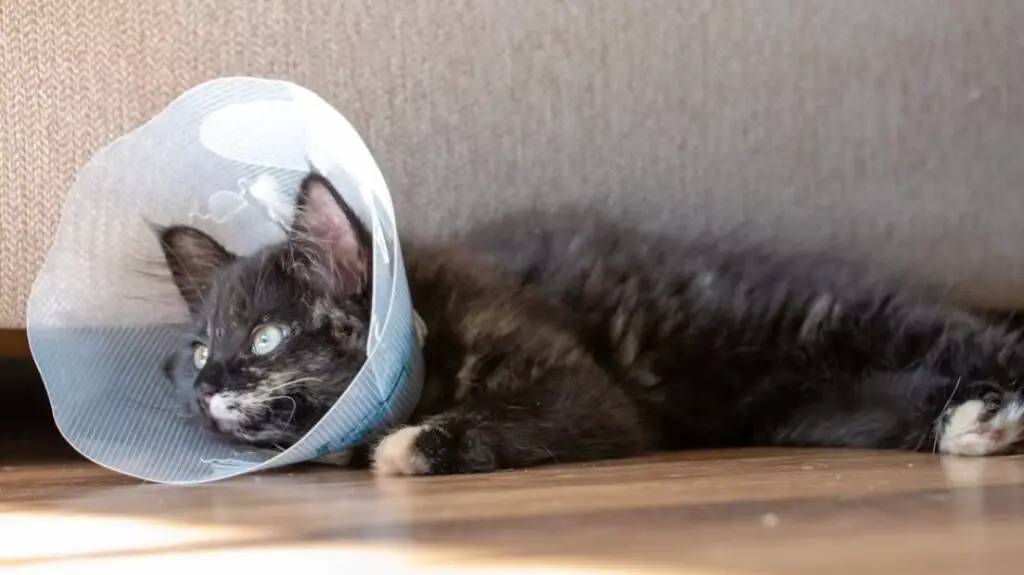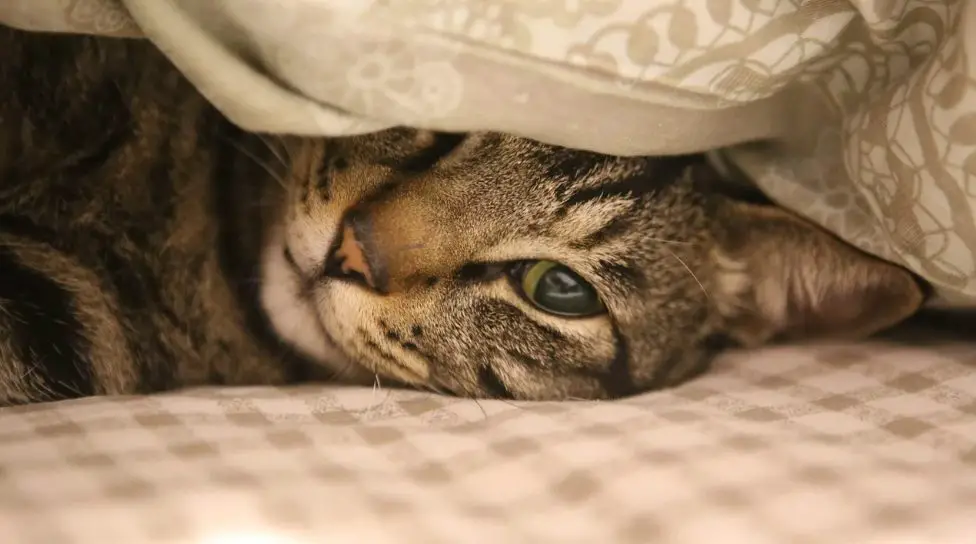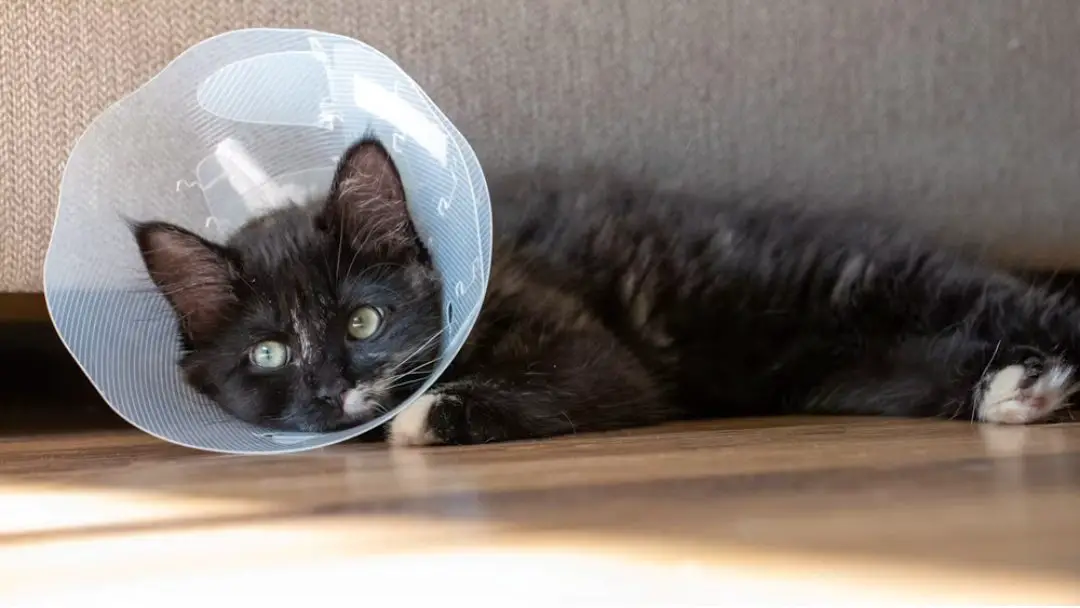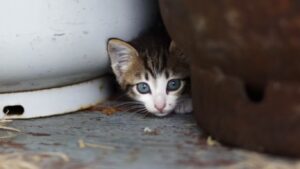My friend neutered his cat, maybe because of the benefits of neutering male cats and for the fact he has no intention of breeding his cat, I was with him all through the process and after the process.
In this post, I’ll be sharing some male cat behavior after neutering, which I observed after my friend neutered his cat.
I also asked other cat owners online who neutered their cats for more information, so keep reading to find out more!
Benefits of Neutering Male Cat
In my opinion, neutering your male cat can bring a lot of benefits for both your male cat and you.
Firstly, it helps reduce aggression, making your male cat more peaceful and less prone to fights with other males.
Secondly, neutering decreases the urge to roam, preventing your male cat from getting lost or injured.
Moreover, it curbs the habit of urine spraying, saving your furniture from unpleasant odors.
Lastly, neutering also lowers the risk of certain health issues, giving your male cat a healthier and happier life.
So, consider neutering a responsible choice that can greatly improve your male cat’s behavior and overall well-being.
Male Cat Behavior After Neutering

From what I gathered and observed after my friend neutered his cat, here are some common male cat behavior after neutering:
1. Decrease in aggressive behavior towards other cats
Based on what my friend observed after neutering his cat, one of the most noticeable changes in your male cat’s behavior will be a significant decrease in aggression towards other cats.
You should keep in mind that intact male cats are driven by testosterone to defend their territory and compete for mates, often resulting in fierce battles with other males.
However, according to what my friend told me, once your male cat is neutered, this aggressive drive is greatly diminished.
He told me that you’ll likely see fewer instances of your male cat getting into scuffles with neighborhood cats or even those in your own home.
This reduction in aggression not only makes for a more peaceful household but also reduces the risk of your cat sustaining injuries or contracting diseases from bite wounds.
2. Elimination of sexual behaviors towards other cats
From what I gathered from my friends who also neutered their male cats, another major change you’ll observe in your neutered male cat is the elimination of sexual behaviors towards other cats.
You should keep in mind that intact male cats are driven by an intense urge to mate, leading to behaviors like yowling, mounting, and even attempting to escape the house to find a female in heat.
After neutering, you notice these sexual behaviors disappear as the primary source of testosterone is removed.
Your male cat will no longer feel the need to roam in search of a mate or engage in mating rituals with other cats.
This not only prevents unwanted litter, but also reduces the risk of your male cat getting lost, injured, or contracting diseases from fighting with other males.
3. Reduction in dominance behavior towards other cats
Neutering also helps curb your male cat’s dominance behaviors towards other felines in the household or neighborhood.
Keep in mind that intact male cats are driven to establish their position in the social hierarchy through aggressive displays and scent marking.
According to some of my friends who neutered their cats, after neutering, your male cat’s need to assert his dominance over other cats around him is greatly reduced.
You will notice fewer instances of your cat blocking access to resources, such as food bowls or litter boxes, or engaging in staring contests and paw swatting with other cats.
This creates a more harmonious living environment for all the cats in your home
4. Decrease in tendency for roaming
During my visit to my friend’s house, after he neutered his male cat, I noticed that one of the most significant changes I noticed in his male cat after neutering was a significant decrease in his tendency to roam.
When I visit my friend most times his cat is not at home for us to interact, this is because he roamed off, therefore, it would be right to say that neutered male cats are much less likely to try to force their way outside and get into trouble.
This is because after neutering I now meet his cat at home, so I think it is safe to say that this reduction in roaming is a direct result of the removal of testosterone, which drives the urge to mate and defend territory.
With this decrease in roaming, you can expect fewer instances of your male cat getting lost, injured, or contracting diseases from fighting with other males.
Related: how male cats behave during mating season.
5. Temporary decrease in appetite
My friend also observed that immediately after neutering his male cat, he experienced a temporary decrease in appetite.
In my opinion, this might be a common side effect of the anesthesia and the procedure itself.
However, he advised that it’s essential to follow your veterinarian’s post-operative care instructions to ensure your male cat recovers safely and quickly.
During the first 24 hours, you should give your male cat a small amount of water to sip on and only a quarter or half portion of their food to limit vomiting.
This temporary decrease in appetite will pass, and your male cat will return to their normal eating habits soon.
6. Decreased urine spraying
According to my friends who neutered their male cats, another significant change you’ll notice is that your neutered male cat has a decrease in urine spraying.
Intact male cats have a strong drive to mark their territory with urine, which can lead to unpleasant odors and messes in your home.
After neutering, this behavior is greatly reduced, and your cat will be less likely to lift their tail and mark everything with urine.
This not only prevents unwanted messes but also reduces the risk of your male cat getting into fights with other cats over territory
7. Improved household companionship and affection
One of the most delightful changes you’ll notice in your male cat after neutering is an increase in affection and companionship, this is according to some cat owners in my group.
Neutered male cats tend to be more loving and tolerant of their human families, often seeking out more cuddles and playtime.
Without the hormonal drive to roam and mate, neutered males are content to stay home and shower you with feline affection.
You may find your once-aloof male cat becoming a lap warmer or snuggling up next to you on the couch more often
8. Less territorial and social behavior
Testosterone is the driving force behind many of a male cat’s more undesirable behaviors, like aggression towards other cats and excessive territory marking.
After neutering, you’ll likely see a significant decrease in these territorial and social behaviors.
Your male cat will be less likely to get into fights with neighborhood felines, reducing the risk of injury and disease transmission.
Spraying and urine marking will also diminish, as neutered male cats have less of an urge to claim every corner of your home as their own.
You can breathe easier knowing your male cat is more relaxed and less likely to cause a ruckus.
9. Improved litter box habits
My friend who just neutered his male told me that one of the most noticeable and appreciated changes after neutering is an improvement in your male cat’s litter box habits.
Keep in mind that he observed that intact males have a strong drive to mark their territory with urine, often spraying on vertical surfaces like walls and furniture.
This urine has a particularly pungent odor that can be difficult to remove from fabrics and carpets.
After neutering, your male cat’s urine will have a less offensive smell, and he’ll be more likely to use the litter box consistently.
You will even find that your male cat starts using the litter box more frequently, as he has less of an urge to mark his territory.
Related: How male cats behave after mating.
What to Expect During Recovery

I further asked my friend what else to expect during a male cat recovery after neutering, and he told me that after neutering, your male cat may experience some side effects like lethargy, loss of appetite, nausea, and vomiting.
He also said that it is essential to follow your veterinarian’s post-operative care instructions carefully to ensure a smooth recovery.
He stated that this includes keeping your cat in a dark and quiet room, providing a small amount of water and food, and avoiding strenuous activities for the first seven days.
Related: Unneutered male cat behaviors.
Final Thoughts
In summary, neutering male cats is a beneficial procedure that can positively impact their behavior.
After neutering, male cats tend to become more calm, less aggressive, and less likely to roam.
So, if you’re considering neutering your male cat, rest assured that it can lead to a happier and healthier feline companion.
Related: Common cat behavior concerns.
Related Questions
Will my male cat’s behavior change after neutering?
Yes, neutering can have a positive impact on your male cat’s behavior. It can help reduce territorial marking, aggression, and roaming tendencies, making him more calm and content.
How soon will I see changes in my male cat’s behavior after neutering?
The effects of neutering on behavior can vary, but you may start noticing changes within a few weeks. It’s important to be patient, as some behaviors may take longer to improve.
Will my male cat become less affectionate after neutering?
Neutering does not typically affect a cat’s affectionate nature. Some cats may become even more loving and sociable after the procedure, as they no longer have the urge to mate.
Can neutering help with aggressive behavior in my male cat?
Neutering can often help reduce aggressive behavior in male cats. It can decrease territorial aggression and minimize the likelihood of fighting with other cats, making your feline companion more peaceful.









